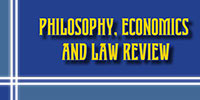Lyudmila RYBALCHENKO
Ph.D. (Economics), Associate Professor (Dnipropetrovsk State University of Internal Affairs), Ukraine
ORCID iD: orcid.org/0000-0003-0413-8296
luda_r@ukr.net
Eduard RYZHKOV
Ph.D. (Law), Professor (Dnipropetrovsk State University of Internal Affairs), Ukraine
ORCID iD: orcid.org/0000-0002-6661-4617
revord924@ukr.net
Ghenadie CIOBAN
D.Sc. in Economics (National Institute for Scientific Research in the field of labor and social protection,Bucuresti Artifex University of Bucharest), Romania
universitate@artifex.org.ro
UDC 330.5; 338.26; 343.973
DOI 10.31733/2786-491X-2022-1-118-126
Keywords: fraud in enterprises, confidentiality of information, copyright infringement, interference in enterprise data systems, data protection
Abstract. Fraud is one of the types of financial crimes, which occupies an important place in the research of scientists from around the world. Relevance of this issue is growing rapidly, due to the increased level of losses in enterprises, institutions, banks, large corporations at both the private and state levels. The consequences from fraudulent activity leads to the loss of significant financial resources in enterprises, which causes a threat to their activities. The resolution of many of the criminal issues that are occurring is difficult, and therefore requires exchange of the experience of many countries worldwide.
According to Ukrainian legislation, there is a criminal responsibility for fraudsters, who misuse financial resources on a large scale and by their malicious actions provide to material damage of enterprises, banks and institutions in large amounts by their malicious actions.
To detect the fact of embezzlement, it is needed to conduct an internal audit in the company, which must be carried out by the relevant department, e.g.: security services department, involving internal audit or internal control; legal department; HR-service department.
Identification of the persons who may be involved in fraudulent actions is a complex issue for which there is a criminal responsibility. Different companies impose disciplinary liability, penalties or criminal liability on employees.
The most vulnerable spheres of fraud are: banks, industry, construction, medicine, transport and procurement. It is in these sectors are concentrated most cash flows and there is no proper control of the inspection of counterparties. In addition, for such work must be professionally trained staff, the availability of which in large companies is small or completely absent.
More often than not, companies suffer from abusive actions of customers, competitors and co-workers of the company.
References
“On National Security of Ukraine” Law of Ukraine of June 21, 2018 № 2469-VIII. https://zakon.rada.gov.ua/laws/show/2469-19.
Eurostat – Crime statistics, http://ec.europa.eu/eurostat/statistics-explained/index.php /Crime_statistics# Total_ recorded_crime.
Fighting fraud: A never-ending battle. PwC’s Global Economic Crime and Fraud Survey. https://www.pwc.com/gx/en/forensics/gecs-2020/pdf/global-economic-crime-and-fraud-survey-2020.pdf.
General Prosecutor of Ukraine, https://www.gp.gov.ua.
Information and consulting platform, https://zakon.help.
Report to the Nations on Occupational Fraud and Abuse. 2021. Global Fraud Study. Association of Certified Fraud Examiners, Inc.
Report To The Nations. 2021 Global Study On Occupational Fraud And Abuse, https://www.acfe.com/report-to-the-nations/2021/#download.
Rybalchenko L., & Ryzhkov E. (2019) Ensuring enterprise economic security. Scientific Bulletin of the Dnipropetrovsk State University of Internal Affairs 1, pp. 268-271.
Rybalchenko, L., & Ryzhkov, E. (2021). Modeling economic component of national security. Scientific journal «Philosophy, Economics and Law Review» 1(1), pp. 25-36.
